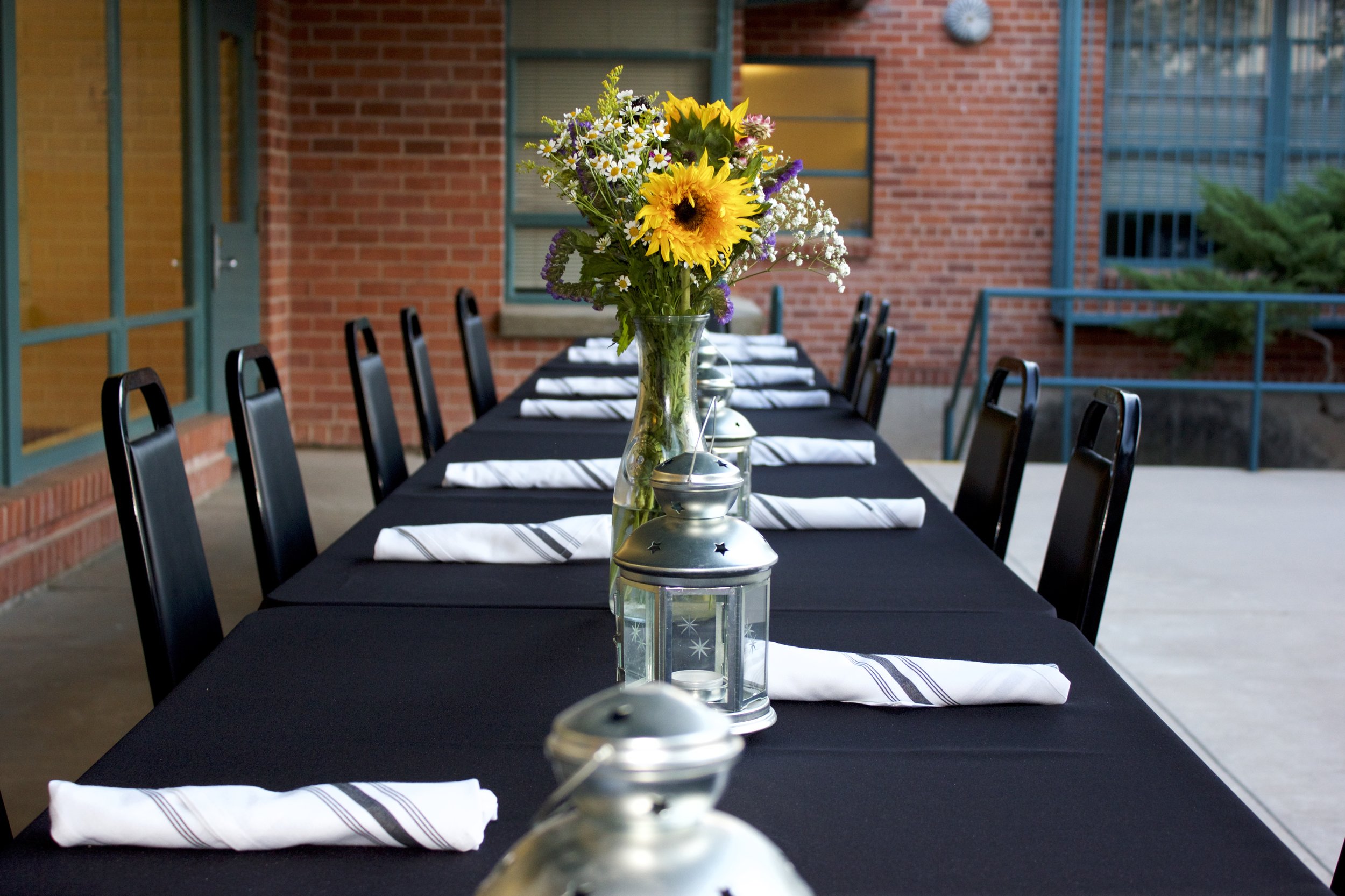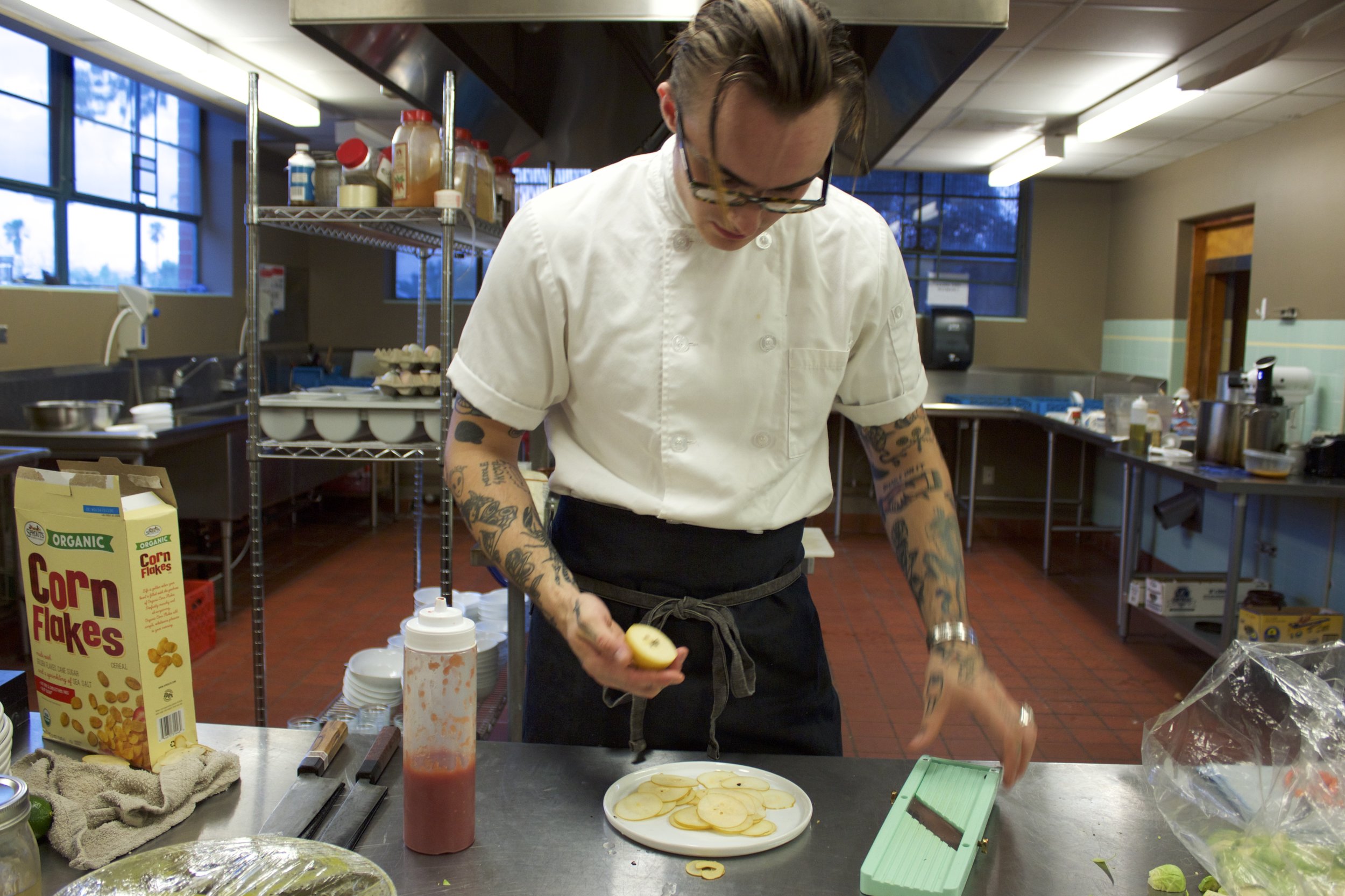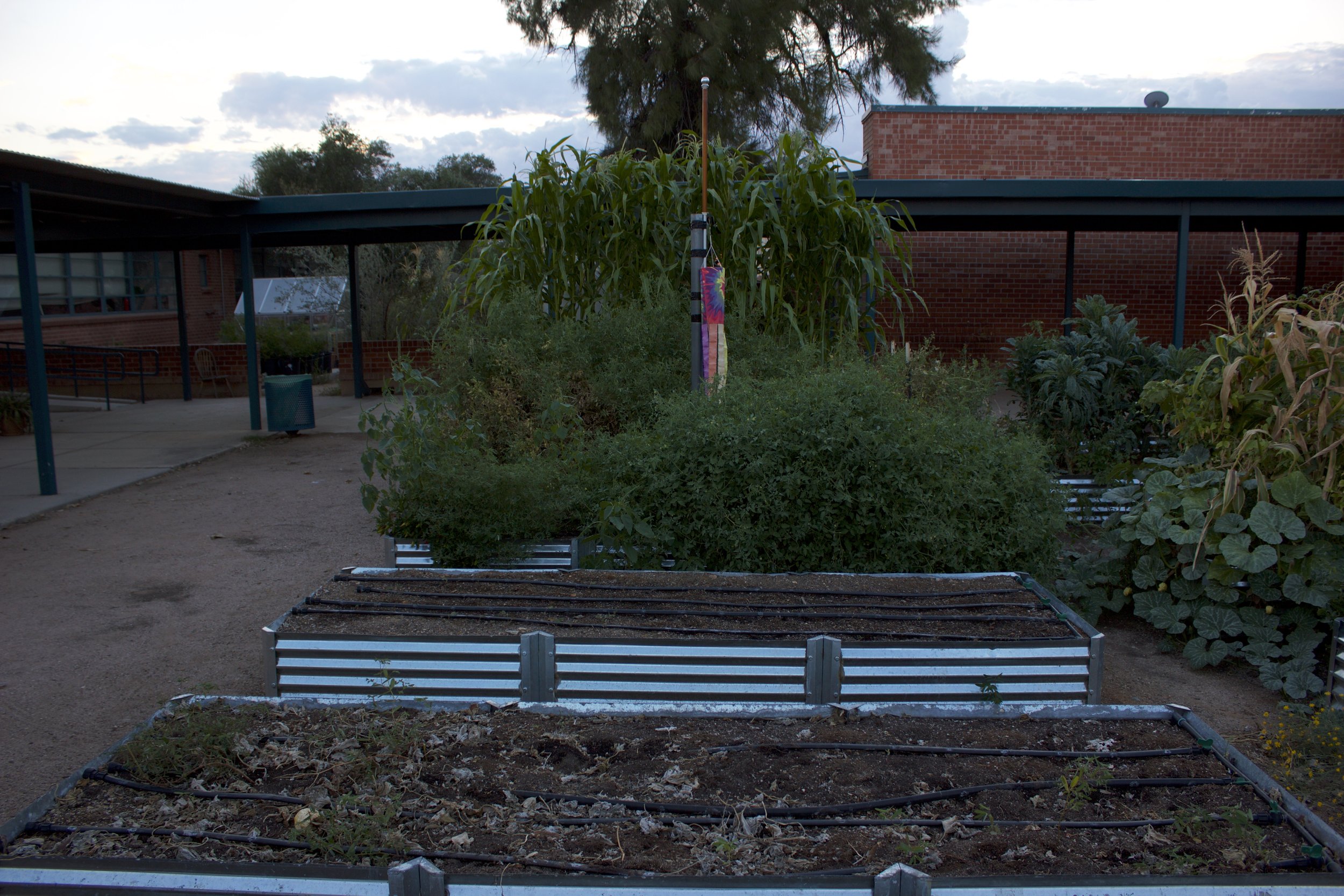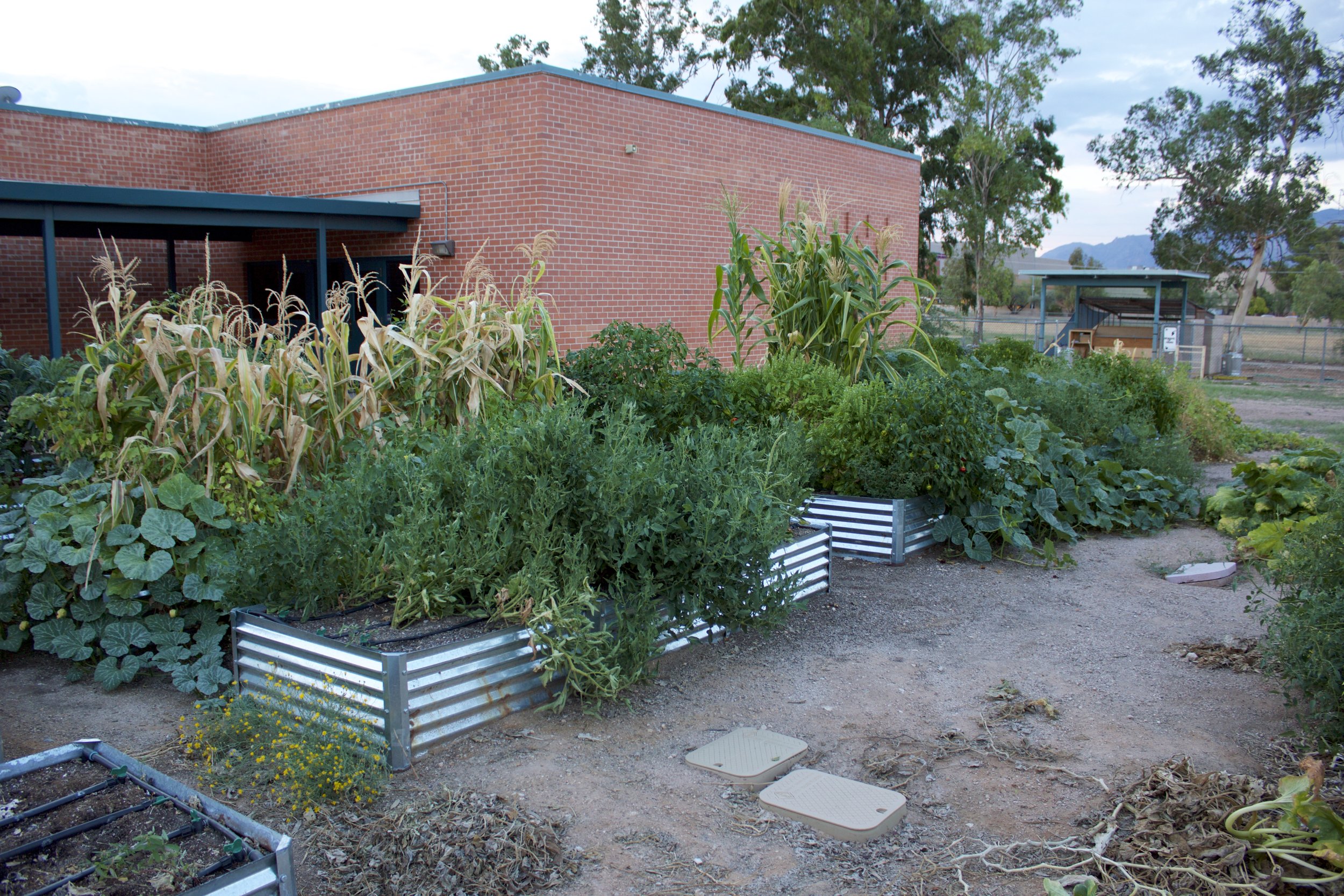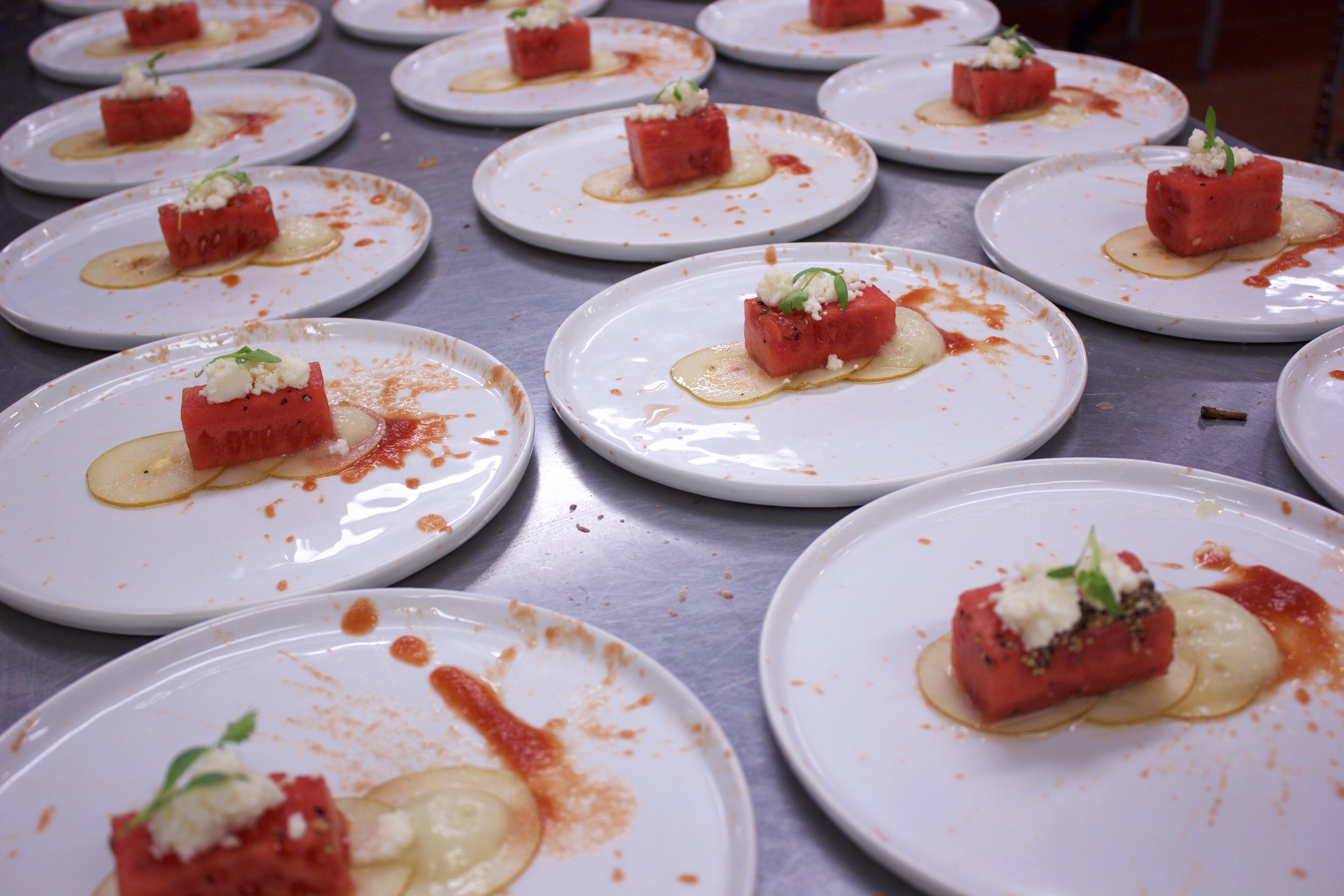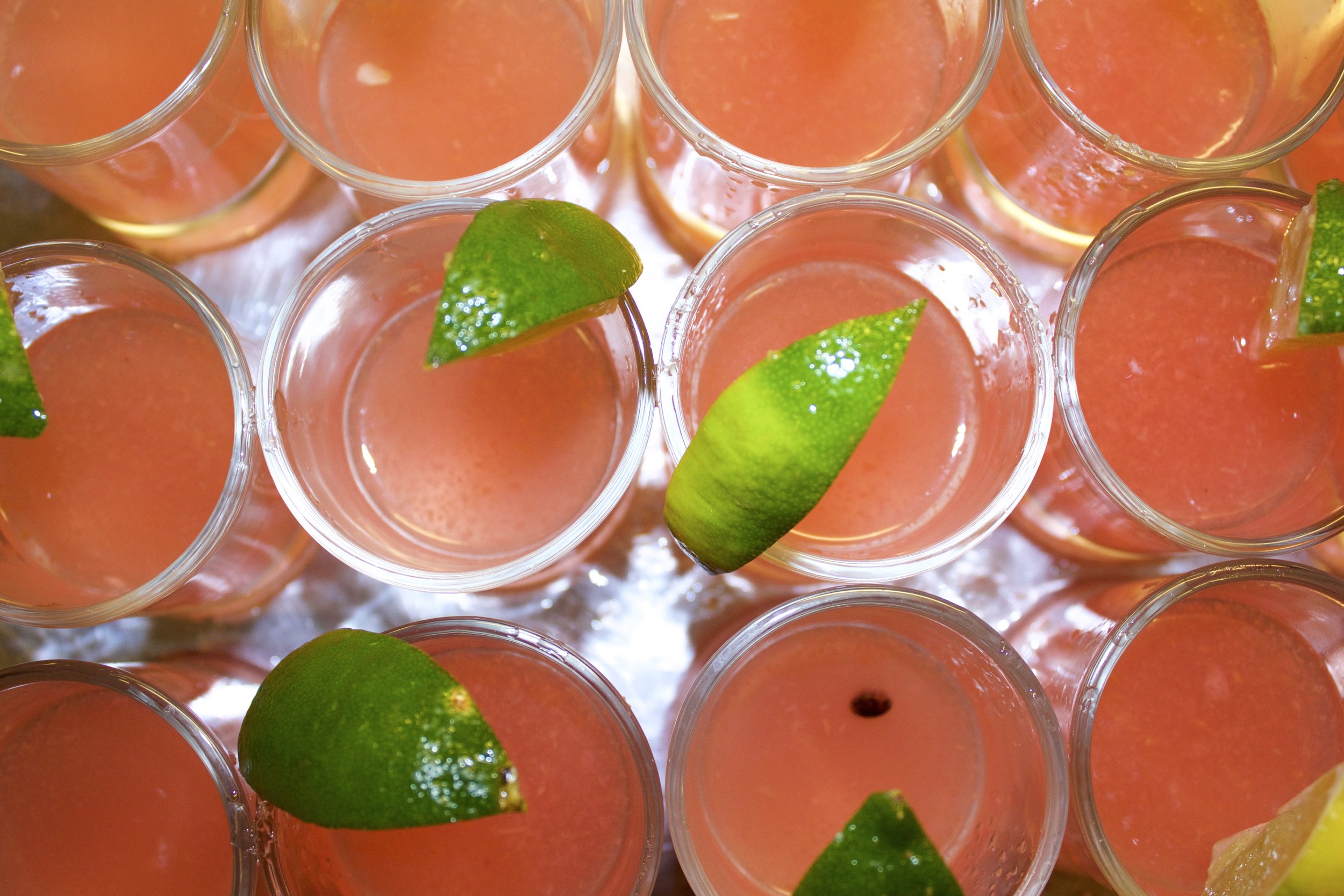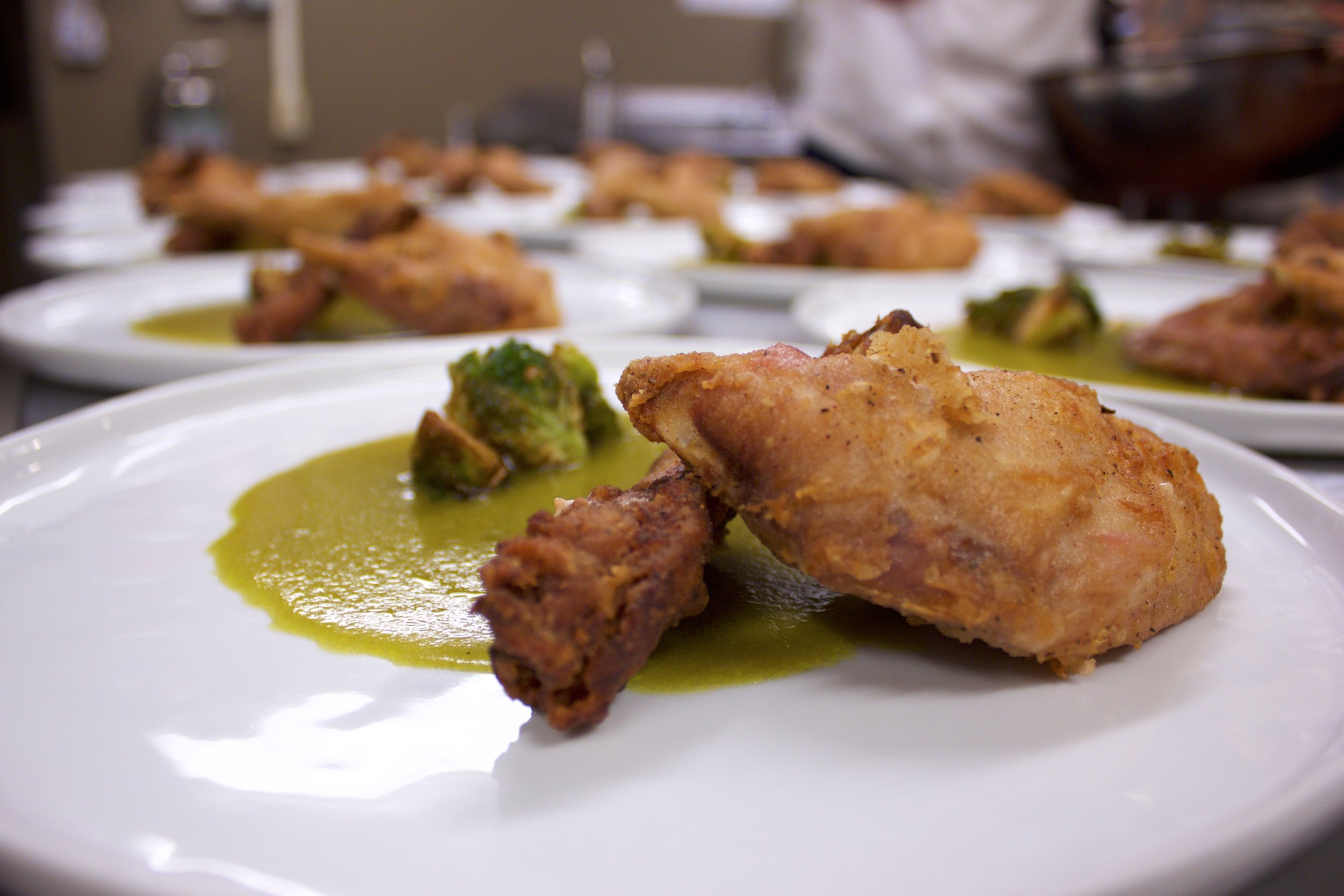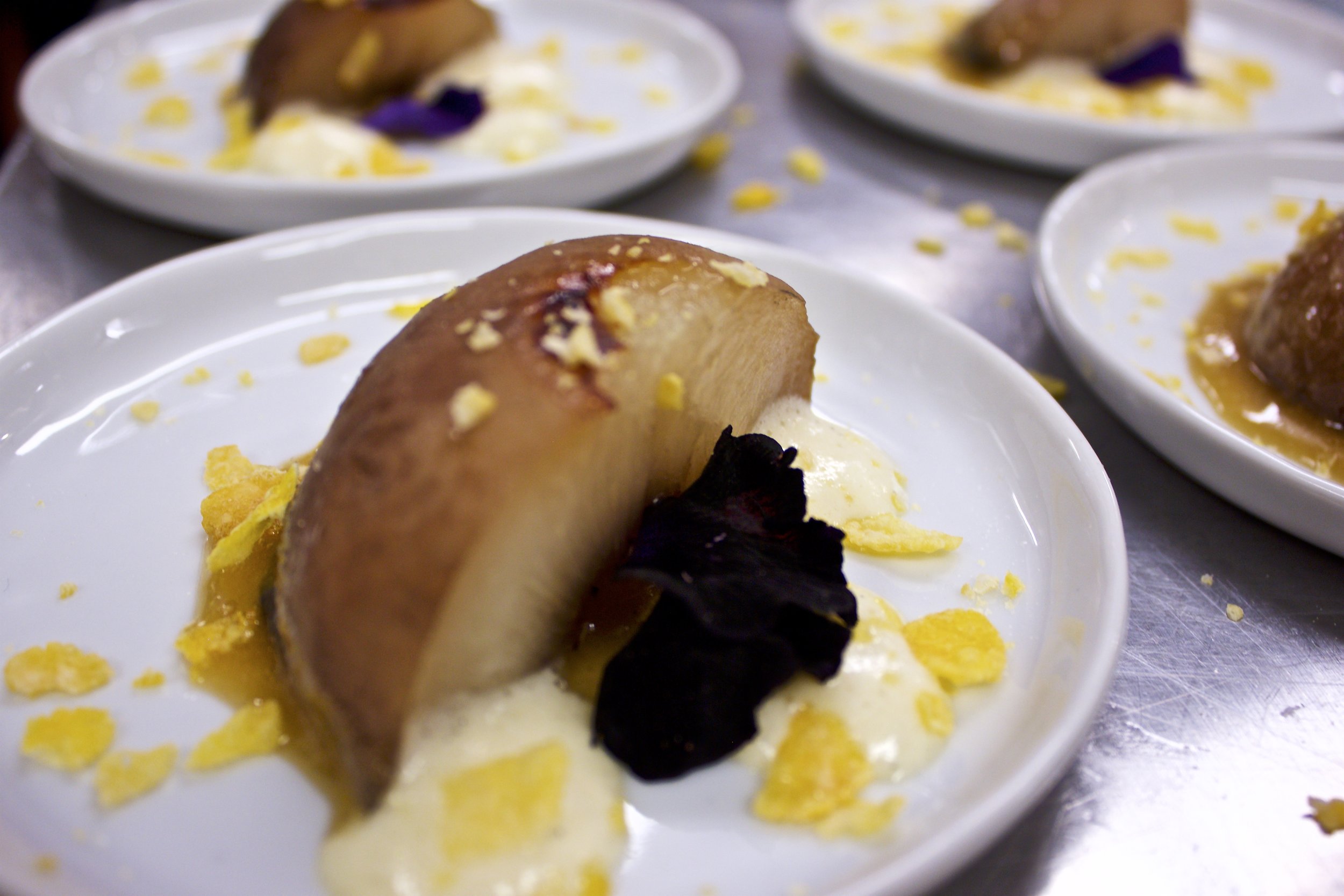Food For Thought - Culinary Education - Aidan Gould
SKY ISLANDS HIGH SCHOOL
CHEF AIDAN GOULD FOR FAT TUCSON
When we think about culinary classes we think college courses or even culinary school but we never think of this as part of a high school curriculum. On this piece for Food For Thought I interviewed Chef Aidan Gould Head Chef and Culinary Arts Director at Sky Island High School for some insight on his culinary courses at this small hidden high school here in Tucson, while also being behind the scenes at his pop up dinner at the school. I know probably most of you are thinking, “Where is Sky Island High School? I didn’t even know it existed.” trust me, that same thought crossed my mind. The school is located right behind Park Place Mall on 14th St. you can’t miss it.
I took the liberty of learning a little more about this school and the programs it currently offers before meeting with Aidan, and let me tell you that the best part is that it’s so connected with the Tucson community and values sustainability in a very big way. So much so that this school has it’s own garden and Horticulture program where they cultivate basically everything that they consume. Quite spectacular don’t you think? Clearly you can see my intrigue building and of course I arrived with all the questions for Aidan, so let’s dive right in.
Tell me a little bit about yourself first.
”I'm a chef from Tucson. I'm self-taught. I've worked at a lot of restaurants, but I really just do like fine dining and popups and this is kind of a great way for me to do that while instilling some of my knowledge on kids who are interested in cooking, pursuing a career in cooking.”
What led you to become a chef?
”I used to race road bikes and I was always pretty focused on nutrition. When I stopped racing I was like, wow, I have no skills at all other than cooking. I guess I'm going to do that. And I just got a job in whatever restaurant I could find and then it kind of went from there. I worked at Tucson Country Club for a while and that's where I kind of got my foundation as far as like banquet cooking and I trained under a saucier there. So that was where I really figured out my interest. I think you can be interested in something and it doesn’t go very far unless you're around the right people and I was just around, which was cool.”
Who were/are your mentors?
”Oh man, I don't know. That's a really hard question for me. His name was Bobby Olson. He was an executive sous chef. I'd say he was kind of my mentor for a little bit while I worked there. Because I didn't go to culinary school, I was kind of my own mentor in a way, pushing myself to learn stuff that I didn't know and working in places and getting yelled at for not knowing how to do something was like, okay, the Internet is my mentor today. I had to Google stuff at work to cover my a**. So I definitely learned in a weird way. I think a lot of people go to culinary school have a mentor that they really train under and I just didn't do that and I think that kind of reflects in my cooking. I don't really follow any sort of super traditional techniques. I know a lot of the traditional techniques because that's how I was trained. But it's given me freedom to mess around with traditional stuff, which is fun for me.”
Would you say that, working at the Tucson Country Club, Charro Steak and Café Torino helped you in your career?
”Totally. At the country club they had a huge budget and they just did a ton of different stuff, a lot of really traditional fringe stuff, a lot of very like classical cooking. So that was a good foundation for all my sauces and all the different cooking techniques. And then at Charro Steak, I learned that's an insanely high volume restaurant, so that really helped me out with knowing you have to be really good to work there. You have to work super fast and you need to be confident in your skill level. I think that basically I've gained something from everywhere, for sure. It's just a ladder. You have to climb that ladder and take as much as you can from every place to use to your benefit and grow your skill and your plan. At this point I’m more of a brand than a chef in some senses, trying to sell myself and that comes with my cooking. But that's also for my pop up events. if I went out and I was rude to everybody, no one's going to come, so it's a lot of figuring out how to deal with difficult situations, difficult customers, and to just always convey positivity around your cooking.”
Would you say that you have a specific style or a specific kind of food you like to cook best?
”That’s another really hard question. If we go through the dinner tonight, it's French techniques, Italian techniques, Thai ingredients, traditional Sonoran ingredients, and it's all just pushed together into one cohesive thing. I hate the word fusion. I wouldn't say that I'm a fusion chef, but I definitely mix a lot of cuisines together to create like a cohesive blend of stuff.”
How did you become involved with this high school?
”I was just getting a little burnt out working at a normal restaurant, 12 hour days, 14 hour days. So, I just put my feelers out and this place popped up and I got recommended for the position. I came here and they interviewed me and it seemed really cool and I've just been here since then (2 years).”
Tell me a little more about the culinary program here. I know that it's very much involved with the horticulture program and such.
”We have the big garden bed set up out there. We have eight open grow beds that we just added this year. So we have now I think like 10 or 12. We're constantly harvesting stuff to use in the kitchen and the class. I have two different classes: I have my lunch class and we do beet Gnocchi and fresh ramen noodles and whatever I want to do basically. W do really cool stuff, but there's a huge focus on sustainability and the ingredients that we have here and using those. And then my other class is called Test Kitchen and it's again, whatever I want to do. We're just about to start a bread-making unit and we’re going to go to Barrio Bread and Don's going to teach them how to make bread. I have a starter that I built from his starter, so, it's an exploration into the art form of cooking, if you will.”
Is sustainability something that you incorporate in your own life and, and how is it working with Eric from Pivot Produce?
”Eric is awesome. I've worked with Eric before, so when I found out that he was working with the school I was super stoked, he's awesome. It's really great. I think especially here in Tucson, we have so much focus on sustainability. If you go to a lot of restaurants here, there is a huge focus on sustainability and plant based cooking. So this here is all plant based, which is cool. We try to keep it really healthy and sustainable at the same time. I don't really do a lot of shopping anywhere. Basically everything comes from Eric or the garden.”
What skills do you hope that your students will gain from your class and this program as a whole?
“I have a wide range of students’ skill. There are kids that have been cooking already before they took the class. What I hope for them to gain is a stronger sense of their style or a bigger foundation. Then there's kids who literally don't know how to hold a knife and have never held a knife before. So for them it's like building the foundation so the next year when they take the class again, they already have that and they can go off of that. I have returning kids from last year who, much like when I started, literally didn't know how to hold a knife or feel comfortable sautéing, and couldn’t really do much. I had to hold their hand through everything. And this year they're taking the class again and it’s like they're doing their first restaurant job, that's their skill level, which is great because then if they’re interested, they can go into a restaurant and be like, look at me. I actually know what I'm doing. “
Why do you think that having a culinary curriculum in high school is important? Because based on my experience in other high schools here in Tucson, you don't really have the opportunity to have this kind of thing, especially a program where it's sustainable and you cultivate your own garden.
”I can sum it up in two words. Ramen noodles. I don't know any kids in college who eat real food. Everybody that I know, all my friends that lived in dorms they just had no clue and they were surviving exclusively off of ramen noodles and that's going to kill you. The other week we made green corn tamales from scratch and I had students in my class that wanted the recipe, so they go home and teach their grandmother how to cook Green Corn Tamales, which is the coolest thing ever.So I think it's really good to have the skillset required to cook yourself even the most basic meal that's actually healthy for you instead of popping something in the microwave that's frozen, is going to lead to a healthier lifestyle and I think more focus on the food you consume as you grow up, which is good.”
What insights have you gained from the teaching versus working at a restaurant?
”I've been in a leadership position in some restaurants before, but not having the teaching background, I think it makes it easier to get really irritated really quickly and to not really enjoy yourself. Here, if a kid messes something up, it’s okay, that's fine, and in restaurants it's like, cool, you messed up your fired. This is a much more forgiving environment and it's kind of taught me some much needed patience, especially in this industry, patience is absolutely not a virtue for most chefs. But having to work with people who literally have zero experience and they're relying on me for everything has definitely taught me some patience and some compassion for people who don't have the skill set that I do.”
This is called the Blue Sky Café and basically is the lunchroom area. So how does this work? I read that you make lunches for everyone too.
“This is why I think my class is so beneficial because they're not just coming to class for an hour and a half and making this thing that they’re probably not going to eat. They make the lunch for every student here and then they serve it, which is really cool. So they have an understanding of that interaction. I feel like that's way more beneficial than just having a cooking class, even if it's for yourself. I remember being a little kid and going to cooking classes and I was like, who cares? This is boring. I don't want to make cake. So this is like they actually get to produce a product every single day and I think 9 times out of 10 they're super proud of their product, which is awesome.”
Are there any other important facts that you'd like to share about the program, the school, yourself, anything else you'd like others to know?
”I think a good point to make is that we're always accepting new kids. If there's anybody reading this and they're like, wow, that sounds so great, you can come by and talk to us anytime. This is the second pop up dinner that I've done here. I've done a bunch, but not in a school and all the profits go back into the school. We're always doing things to invest in ourselves and invest in the programs here and kind of cultivate the best education possible for our students. That's it. That's my spiel.”
Sky Islands High School is located at 6000 E 14th St, Tucson, AZ 85711. Chef Aidan Gould hosts occasional pop up dinners and usually posts them on the school website. For more information feel free to take a look at the school website: https://skyislands.org
Coming soon: Sky Islands Farmers Market! Stay tuned on their website for updates.


